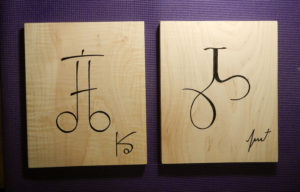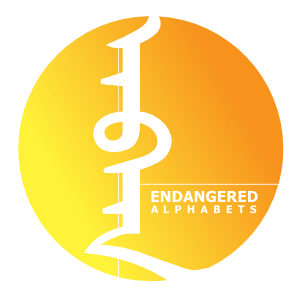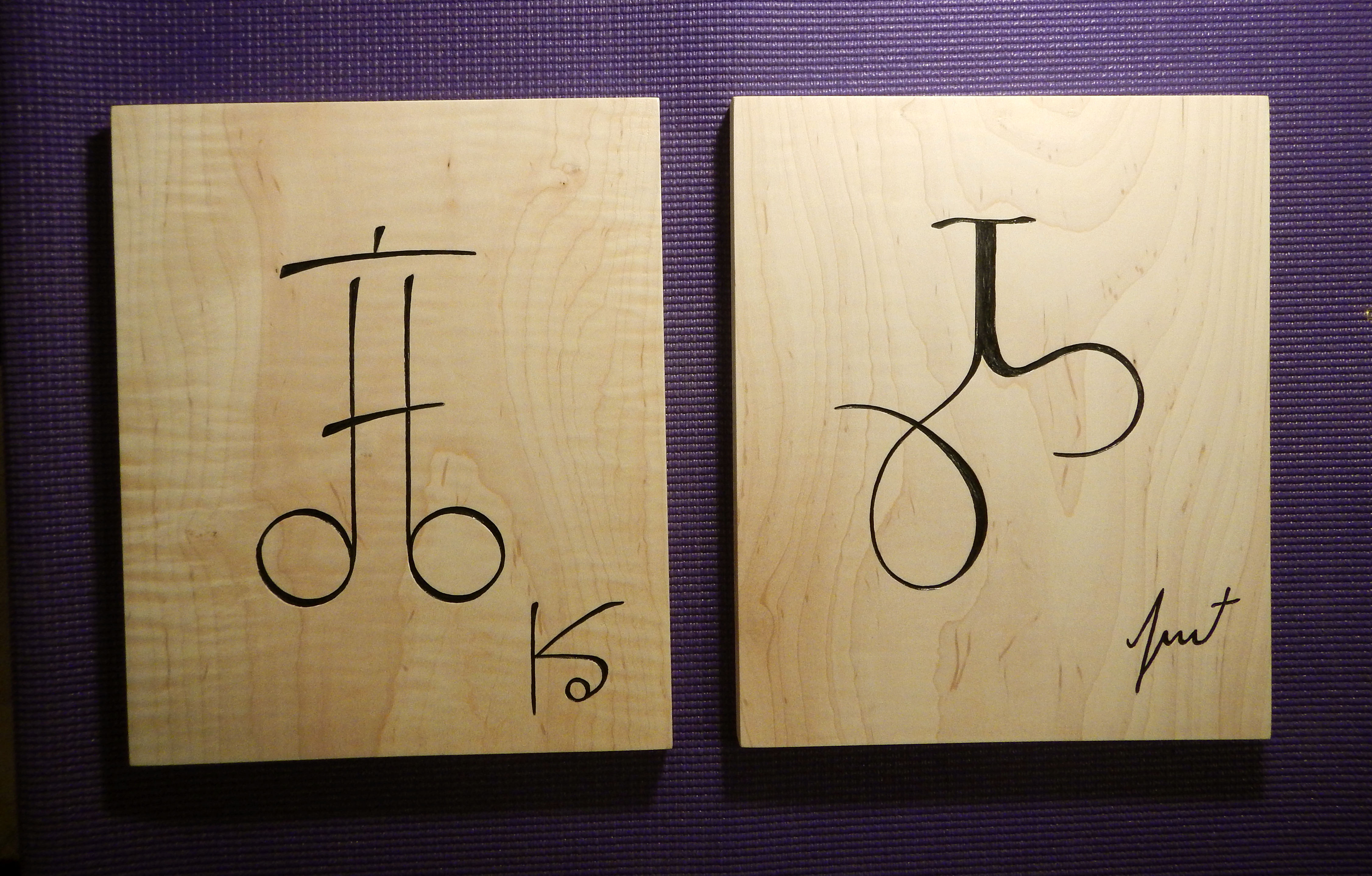The Scrabble Series
 If you’re on Facebook, you’ve been seeing hints and clues about my next series of carvings, and here are the first prototypes: Scrabble tiles in endangered alphabets.
If you’re on Facebook, you’ve been seeing hints and clues about my next series of carvings, and here are the first prototypes: Scrabble tiles in endangered alphabets.
Here’s my thinking:
After my very serious and poignant Mother Tongue series, I wanted to do something more playful, but still full of intent. After all, it’s the dominant culture that can afford to be playful, and I wanted to both make use of and undermine that privilege. Hence the Scrabble Series.
The central point is very simple: you’re very unlikely to see a set of Scrabble tiles, or any commercial board game, in an endangered, minority or indigenous language. The makers would deem it just not commercially viable.
But a commercial board game such as Scrabble is not just a game—it’s a means of teaching the language and implicitly underlining its importance. It becomes (and I think I invented this ugly phrase, but someone may have spelled it out before me) culturally self-reinforcing. It emphasizes the rightness of the language, and the writing system, used by the majority. Everyone else, if they want to play, had better learn English.
You can’t make words with these tiles, given that they all in different languages (and some are syllables rather than letters), but that, too, has a point. Minority and indigenous cultures are increasingly disconnected from each other and from their own roots. Most of the western world can play Scrabble with the same set of tiles; likewise, most of the major nations can connect by Facebook. Minority, indigenous and regional cultures can not—or at least, they can only do so by learning one of the world’s major languages and its script. These tiles, like their cultures, are scattered. Easily lost.
I was also interested in this project because these faux Scrabble tiles involve not only letters but numbers. In fact, I chose to include only languages that have their own number systems—a minority of a minority. This is significant but hardly surprising, given that one of the most powerful forces of globalism is commerce. Numbers are the vocabulary of business.
The actual letterforms on Scrabble tiles are traditionally plain and functional; my own work tends to go more for the artistic and expressive. In this project I’ve gone for a balance between the two. Everything I do with the Endangered Alphabets Project tries to show the beauty of the lesser-known scripts as a means of stressing their value and their particular expression of the culture that developed them. By putting these wonderful letterforms on traditionally plan tiles I’m hoping to create a small sense of surprise, and a recognition of how functional and mechanical the Latin alphabet is by contrast.
It will be a fine day, in my opinion, when every culture has a board game that uses the characters of its own writing system. Just to be clear: many cultures don’t even have books in their own scripts, or they only have ancestral books that almost nobody can read.
As a smell step in that direction, my hope is that the Scrabble Series will attract $5,000 in donations to the Endangered Alphabets Project that will enable me, with the help of friends, colleagues, and volunteers, to create Scrabble-style board games in the endangered alphabets of Mro, Marma and Chakma, for the indigenous children of the Chittagong Hill Tracts of Bangladesh.
If you’d like to support this endeavor, please do so at http://endangeredalphabets.com/donate/. Thanks!

